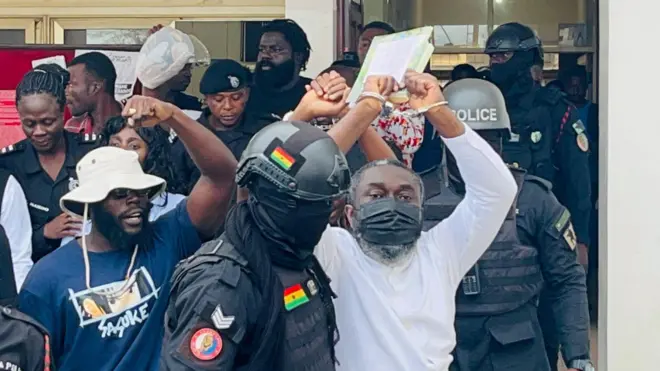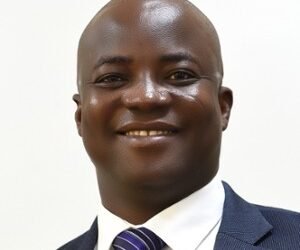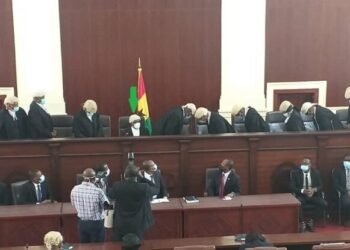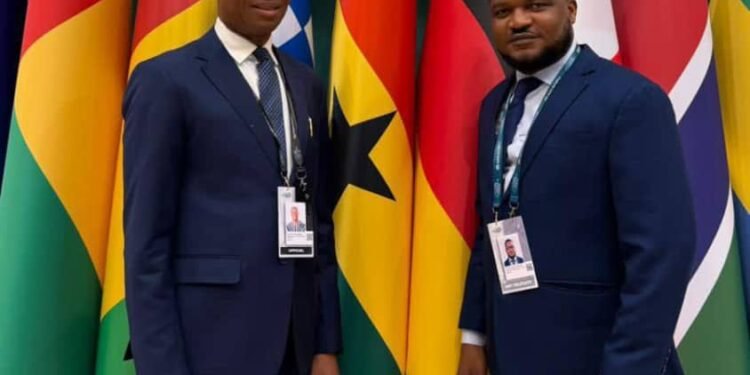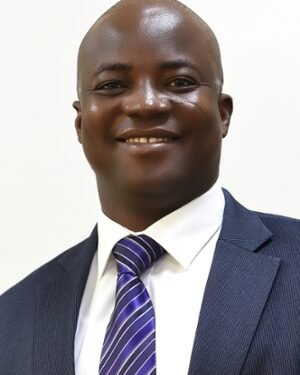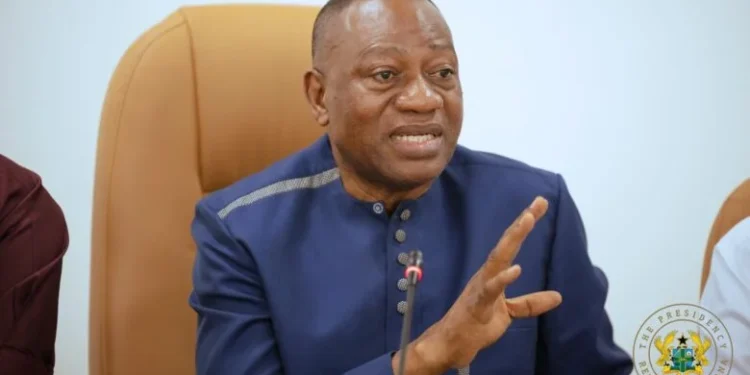The fight against illegal mining, commonly known as galamsey, in recent times, has been riddled with controversy, raising questions about the country’s commitment to human rights and the rule of law.
Recent protests against galamsey have culminated in the arrest, detention, and remand of several activists, sparking accusations of abuse and selective justice.
While the majority of these anti-galamsey protestors have been granted bail, albeit under stringent conditions, Osagyefo Mawuse Oliver Barkar-Vormawor, the convener of the movement, has been denied bail twice—a decision that has intensified criticism from civil society organizations and constitutional activists.
Concerns over his health have also exacerbated the tension, with reports that Oliver Barkar-Vormawor was rushed to the Police Hospital in Accra after his condition deteriorated.
His continued detention, coupled with his declining health, has provoked a wave of public outcry, particularly from the National Coalition Against Illegal Mining (NCAIM), which has condemned his ongoing incarceration.
The National Coalition Against Illegal Mining, a collective of civil society organizations, student groups, and activist movements, in a fervent call to action, called for the immediate release of all detained protestors, accusing the judiciary of engaging in selective justice.
The coalition insisted that the principles of equality before the law and natural justice have been compromised, potentially undermining the credibility of the judiciary.
In a press release issued by the NCAIM, its spokesperson, Arimiyaw Wusama, urged the judiciary to act swiftly, arguing that selective justice tarnishes the democratic image of Ghana and violates the rights of citizens who are simply advocating for the protection of the environment.
“Selective justice betrays the democratic principle of equality before the law, the rule of natural justice, and ultimately mars the integrity of the judiciary.
“Partisanship is counterproductive in this fight. We must rise over and above political differences, religious denominations, or gender differences to ensure the ban of unlawful and illegal mining activities in our country.”
Arimiyaw Wusama, Spokesperson National Coalition Against Illegal Mining
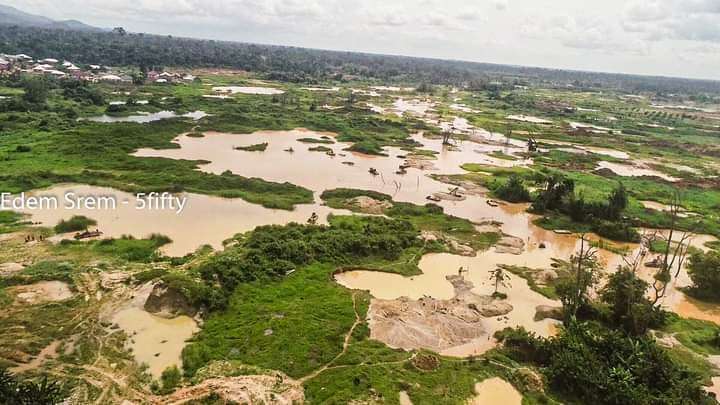
Calls for Stakeholders Support
As tensions rise over Oliver Barkar-Vormawor’s detention, the NCAIM underscored the need for all stakeholders to join its calls for his release, urging all individuals, pressure groups, student organizations, and civil society bodies to join hands in opposing illegal mining.
This rallying cry is driven by the belief that galamsey is a common enemy that transcends political and social divides, threatening the country’s natural heritage and public health.
The treatment of anti-galamsey protestors, however, remains a sore point. While some have been granted bail, Oliver Barkar-Vormawor’s repeated denial has raised concerns about the application of justice.
Legal experts and human rights advocates have criticized the courts for what they perceive as an arbitrary use of bail conditions, which they argue serves to punish activists rather than uphold justice.
Many believe that the judiciary’s actions may be setting a dangerous precedent, where peaceful protest and advocacy can result in unjustified detention.
The NCAIM’s press statement, signed by representatives from various activist groups such as the Economic Fighters League, Youth Revolutionary Front, and FixTheCountry Movement/Democracy Hub, reinforced this view, calling on the judiciary to correct the perceived injustices.
The statement argued that the indefinite detention of protestors, particularly a convener like Barkar-Vormawor, sends a chilling message to other activists who wish to challenge the status quo and hold the government accountable for environmental harm.
In the words of Arimiyaw Wusama, “Justice delayed is justice denied. We cannot afford to lose sight of the real enemy—illegal mining—while we engage in selective justice. Ghana’s future is at stake.”
It is without doubt that the broader anti-galamsey movement has gained traction in recent times as activists decry the destruction of Ghana’s forest reserves and freshwater bodies.
Illegal mining activities have been responsible for widespread environmental degradation, with the poisoning of rivers and deforestation posing severe risks to public health and future generations.
NCAIM and other activists are thus right to demand immediate and decisive action. For them, the issue is not just about enforcing laws but about protecting Ghana’s future.
Forests and rivers, once plentiful, are being decimated at alarming rates, threatening the ecological balance and, by extension, the livelihoods of millions.
READ ALSO: MTN Shows Commitment To Sustainability Through Project Zero

